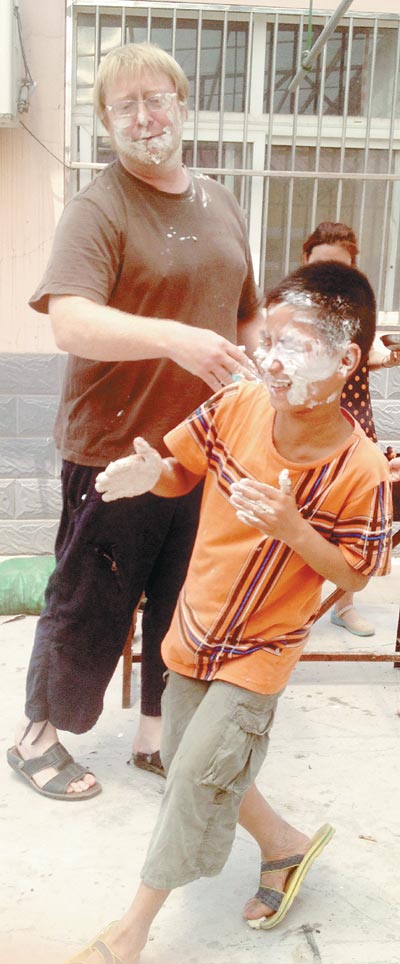Sentences for the innocent
 |
| A small person's big identity question |
The question then arises of how we should deal with the secondary sentences we give their families and especially their children.
We can - and should - provide resilience opportunities for these kids, who are ultimately innocent. We often view these kids through their parents' violations. But we need to realize we share any failure to address their rights and needs.
That includes failing to provide caregiving housing with therapy - the kind that makes them carefree enough to smash frosting in an "uncle's" face and dash away, giggling. (At least before getting their comeuppances - revenge was sweet that day.)
Their parents' behaviors are largely beyond our control. But ours aren't. We collectively determine what happens in society every day.
Perhaps the most common and disturbing questions these kids ask, caretakers say, is: "Why me?"
We perhaps can't answer this. But we should ask another question: "What role do I play in answering the questions these children have?"
And if we fail to provide them with the means to find their solutions to discovering resilience, well, we're in a way guilty of injustice, too.
But what sentence do we serve?

















